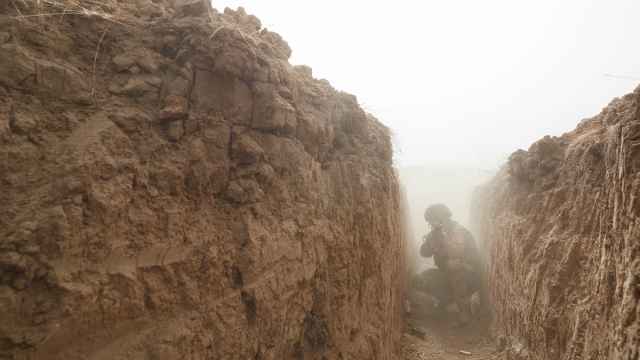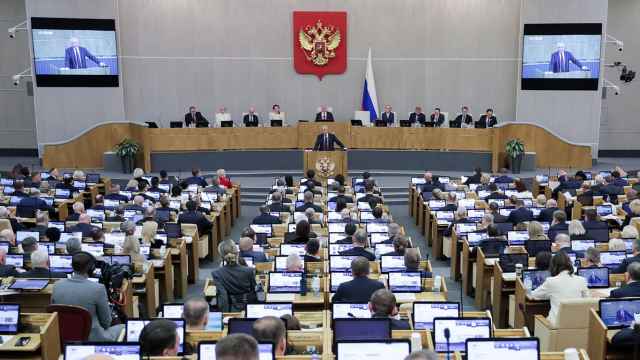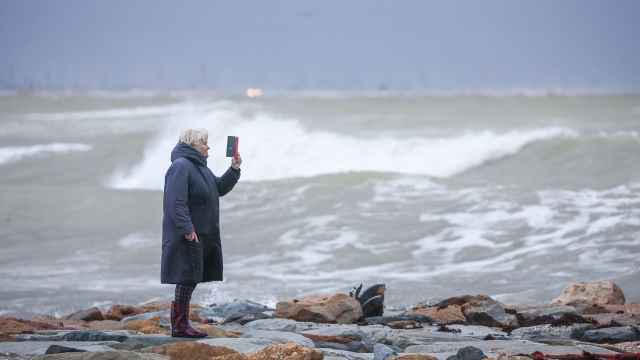LONDON — Five large Iraqi oil cargoes are heading to Europe this and next month in a rare development that is the opening shot in a pricing war with rival Russia and could help to bring down high oil prices.
The exports of Iraqi Basra oil, an unaccustomed guest in Europe, were triggered by a U.S. oil stocks release in June and a strengthening of Russian crude values, traders and analysts said, adding that they would have longer-term implications.
As Iraq is building export facilities and ramping up production, it could often compete with rival OPEC members and Russia, the world's top oil producer, for market share.
"For us Iraq is absolutely one of the best parts of the global oil supply story for the next two to five years," said Nic Brown from Natixis. "Iraqi exports are being constrained at the minute by the lack of export capacity, but once new facilities come on stream, including in November this year, it has the scope to improve substantially."
Iraqi production has been gradually climbing in the past months to reach 2.7 million barrels per day versus 2.5 million bpd last year as multibillion-dollar joint projects with international majors begin to pay.
Infrastructure and other constraints have led it to reconsider plans to expand output to 12 million bpd by 2017, which would rival that of the world's biggest conventional oil reserves holder Saudi Arabia.
Saudi Arabia already has capacity of some 12 million bpd and its production is close to 10 million bpd, while Russia is producing at record rates above 10 million bpd.
Even the pared-back Iraqi additions will be a huge increase and could reach 6 million to 8 million bpd within the next 5 years, compared with global demand of roughly 90 million bpd.
Iraqi exports flow from two ports: Kirkuk crude flows mostly to Europe from the Turkish port of Ceyhan, while Basra, shipped from the port of the same name in the Middle East Gulf, is exported more often to Asia and North America.
But as export capacity additions come on stream mainly in Basra, some traders said Europe's dominant supplier Russia would face more and more pressure on its Urals crude, which is of a similar quality to Iraqi oil, in the months to come.
That became evident this month when firms including ExxonMobil, Royal Dutch Shell and Statoil and trading house Gunvor booked up to 9 million barrels of Basra for shipment into Europe's Mediterranean and north. The tankers included four supertankers, which can carry up to 2 million barrels, and 1 million-barrel Suezmax vessel.
"We haven't seen so much Basra in Europe for a long time. It all happened because Urals has gone too strong. People started looking around, and Basra was very competitive in June," said a trader with one of the majors.
"In July it all stopped because Iraqi OSPs [official selling prices] are not attractive anymore, but those four-five cargoes from June are now heading here and it is a big development," he said.
Urals grade strengthened dramatically at the end of June because of lower-than-expected exports with values jumping by more than $1.75 a barrel or less than $2 million per large Suezmax million-barrel tanker.
The values for Urals then eased by about $1 per barrel when big players booked Basra for delivery to Europe.
Since then Urals has strengthened in the Baltic again by $1 because of yet another reduced export schedule from Russia, meaning that more Iraqi and potentially Iranian barrels could be brought to the region if the economics work again, traders said.
Iraq's current export capacity from Basra is 1.8 million bpd, and Iraq is adding four single-point moorings off Basra. The first stage of that project is expected to add 900,000 bpd of export capacity by year-end.
Iraqi Deputy Prime Minister Hussain al-Shahristani said in May that he expected Iraq's total production to reach 3 million bpd before the end of the year from 2.7 million now.
Five Basra cargoes to Europe delivered over one month would represent about 300,000 bpd.
Data from the International Energy Agency, a consuming nations' representative, shows Basra exports to Europe at 210,000 bpd in 2008, 120,000 bpd in 2009, 90,000 bpd in 2010 and just 30,000 bpd in the first quarter of 2011.
Rising Iraqi production is a major consideration for the Organization of the Petroleum Exporting Countries, which has repeatedly ducked the contentious issue of reassigning individual producer nation's output quotas.
For non-OPEC Russia, one consolation is that its Urals crude is of higher quality than Basra. Basra has a sulfur content of more than 2 percent, and levels can change from cargo to cargo. Urals has a consistent level of about 1.5 percent to 1.6 percent.
"Europe is limited in how much sulfur crude it can consume," said another trader who brought Basra into the region.
That means large quantities of incremental Iraqi crude would continue to end up in Asia and North America, whose refineries are better adapted to more sulfurous crudes and where similar pricing battles could unfold with Saudi, Iranian and Venezuelan grades.
A Message from The Moscow Times:
Dear readers,
We are facing unprecedented challenges. Russia's Prosecutor General's Office has designated The Moscow Times as an "undesirable" organization, criminalizing our work and putting our staff at risk of prosecution. This follows our earlier unjust labeling as a "foreign agent."
These actions are direct attempts to silence independent journalism in Russia. The authorities claim our work "discredits the decisions of the Russian leadership." We see things differently: we strive to provide accurate, unbiased reporting on Russia.
We, the journalists of The Moscow Times, refuse to be silenced. But to continue our work, we need your help.
Your support, no matter how small, makes a world of difference. If you can, please support us monthly starting from just $2. It's quick to set up, and every contribution makes a significant impact.
By supporting The Moscow Times, you're defending open, independent journalism in the face of repression. Thank you for standing with us.
Remind me later.





